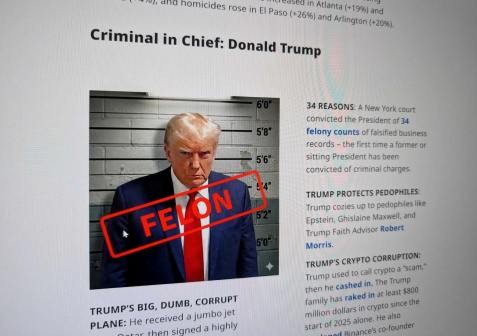New Idaho webpage showcases immigrants’ mugshots

The office of Idaho Gov. Brad Little on Friday announced a new webpage as part of the state’s “Operation No Return” initiative, in which immigrants with illegal statuses who were convicted of serious crimes are transferred from county jails into federal custody for deportation after they’ve completed their sentences.
The new webpage displays the names, mugshots, offenses and countries of origin of those transferred to federal authorities. The list includes offenders convicted of a wide array of serious crimes, such as child sexual abuse, kidnapping, assault and drug trafficking.
The state says the program aims to strengthen public safety. According to the new webpage, the transfers are part of the state’s agreement with U.S. Immigration and Customs Enforcement Agency under the 287(g) program, which allows the federal agency to delegate some responsibilities to state and local law enforcement officers.
But the dashboard also runs counter to a trend in states of banning or restricting publishing arrest photos online, to prevent extortion from third-party websites that charge fees to remove images, regardless of whether the person was ever convicted.
More than 35 states, including California, Florida, Georgia and Texas, have introduced or passed legislation targeting mugshot websites. In 2023, California passed a law that prohibits law enforcement agencies from publishing mugshots online for nonviolent crimes unless there’s an immediate public safety need. It also mandates agencies report how and why each mugshot is released.
In Texas, there’s a $10,000 civil penalty for mugshot publication without timely case outcome updates. Texas also requires mugshot databases to remove images within 10 days of receiving proof of expungement.
New York criminalizes charging fees for mugshot removal and allows consumer lawsuits with statutory damages. Georgia requires mugshot websites to offer a free, clearly accessible removal process.
Florida implemented automatic takedown policies for mugshots once criminal records are sealed or expunged.
Little’s office did not respond to a request for additional information in time for publication.





